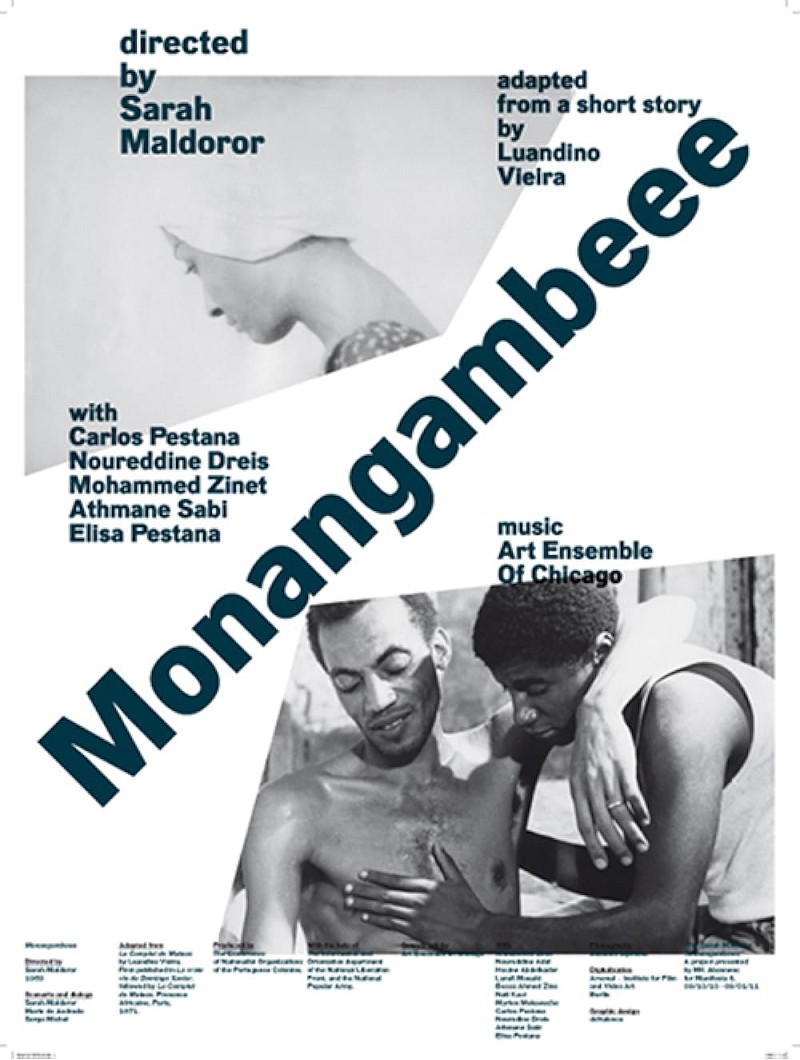
Followed by a conversation between Annouchka de Andrade and Jeremy Harding.
Sarah Maldoror (1929-2020) has been hailed as one of the great directors of anti-colonial cinema, finally starting to receive her due. We present an evening of screenings of her work, in partnership with the London Review of Books, and are also delighted to welcome her daughter Annouchka de Andrade, currently completing a digitised archive of her mother’s remarkable body of work, to introduce and discuss the films, in conversation with the LRB’s Jeremy Harding.
Monangambeee (1969, 17 minutes) tells the story of an anti-colonial activist detained by the Portuguese secret police in pre-independence Angola. Shot in Algeria and funded by the FLN, Monangambeee is both a gem of activist anti-colonial cinema and a forerunner of Maldoror’s best-known film, Sambizanga.
The Leningrad Hospital (1982, 52 minutes), commissioned by France 2 TV, speaks to Maldoror’s anxieties about anti-colonial struggles deadlocked by the Cold War. Based on a story by Victor Serge, the great figure of the Left Opposition in Stalin’s heyday, The Leningrad Hospital pulls us out of Africa, and back in time, to the Soviet Union of the early 1930s. Like Monangambeee and Sambizanga, it traces the path of a militant towards arrest and detention. Maldoror, an admirer of Serge, always envisaged African liberation in a broad global context.
About Sarah Maldoror
Maldoror made her name in theatre in Paris during the 1950s as a co-founder of an all-Black troupe known as The Griots, whose productions included Sartre’s play Huis Clos, dramatised readings from work by the Martinican poet Aimé Césaire, and the premier of Jean Genet’s play Les Nègres. In 1959 she moved to newly independent Guinea, under its radical president Sekou Touré, and embarked on a career as a filmmaker. After relocating to Algeria, she worked with Gillo Pontecorvo on The Battle of Algiers, released in 1966. Monangambeee, her first short feature, appeared in 1969, followed three years later by Sambizanga, her breakthrough film. She went on to make a further forty, mostly for French television. Some were brief, pithy items for mainstream arts and culture slots; others were full-length TV dramas, including Un Dessert pour Constance (1979) and Le Passager du Tassili (1986). Maldoror’s work has won acclaim from scholars of Black history and African cinema, as well as growing numbers of eclectic cinephiles. But as the film critic and cultural analyst Sukhdev Sandhu remarked after Maldoror’s death, hers is ‘a damaged, fugitive filmography’: several of her works are missing, others in urgent need of restoration.
A discount applies for those buying tickets to both of our Sarah Maldoror in Focus events. If you have a ticket for the shorts screening, and for Sambizanga in your basket, the price will automatically discount to £17.50 for both tickets.